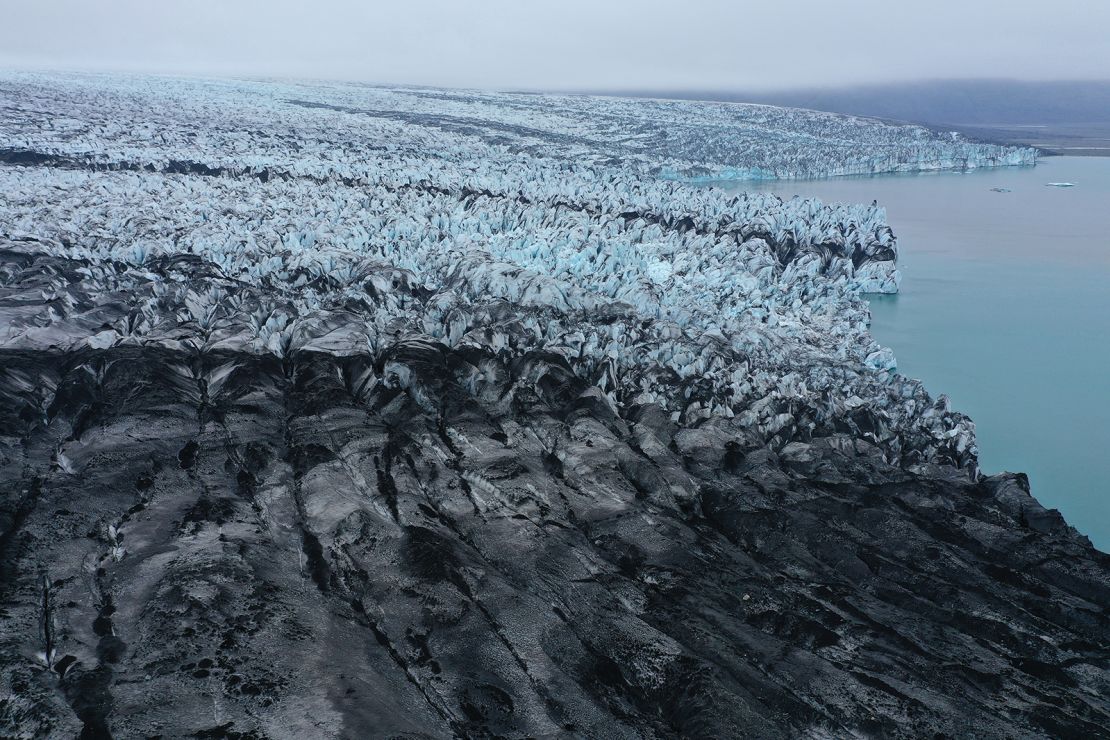One American man is dead,?and an American woman is injured in Iceland following a collapse of the Breieamerkurj?kull ice cave, Iceland’s public broadcaster RUV said Monday.
The rescue operation, which started Sunday evening, is now complete, with police saying no more people are trapped under the ice, according to the public broadcaster.
Local police said a group of 25 tourists from several countries were exploring an ice cave at the Breieamerkurj?kull glacier in southeastern Iceland when the incident occurred shortly before 3 p.m. Sunday. Four people were struck by falling ice.
The American couple were rescued?on Sunday, but the man was pronounced dead at the scene, while the woman sustained injuries of unknown severity and was taken to a hospital in Reykjavík, RUV reported.
More than 200 responders participated in the operations, and a massive amount of ice has been broken down and moved, almost all by hand, RUV said,?citing the police. CNN has reached out to police for details.

A US State Department spokesperson confirmed the death of one US citizen and the injury of another, saying that they were “ready to provide consular assistance.”
“We offer our sincerest condolences to the family and loved ones on their loss,” the spokesperson said.
The spokesperson did not provide details on the circumstances of the death and injury or information about either of their identities. The State Department typically does not provide personal information about Americans killed or injured abroad.
Ice caves are a popular destination for visitors to Iceland, with tour operators offering customers the chance to “explore the insides of glaciers” and see the blue color and “stunning patterns” in the ice, according to Associated Press.
Glaciers cover about 11% of the territory of Iceland, an island nation in the north Atlantic that sits on the southern edge of the Arctic Circle, AP reports. The largest is Vatnajokull, which covers 7,900 square kilometers (3,050 square miles). Breidamerkurjokull is a tongue of Vatnajokull that ends at the Jokulsarlon Lagoon, where icebergs constantly break off from the glacier.
According to the US Geological Survey, the Breieamerkurj?kull was growing until the turn of the 19th?century, but since about 1930 it has been melting due to planet-warming fossil fuel pollution.
Local news site Visir said the group that was at the cave during the collapse was on an organized tour accompanied by a guide. Most people were outside the cave when it collapsed, AP reports.
Moving rescue equipment and personnel up to the glacier was difficult due to the rugged terrain, and rescuers had to cut through the ice using chainsaws, says AP.
The glacier is about 300 kilometers (185 miles) from a?volcano that erupted Friday?on the Reykjanes Peninsula in southwestern Iceland.
Iceland has been affected by human-caused climate change and has been warming roughly three times faster than the rest of the planet, according to the Icelandic Met Office.
Reporting contributed by CNN’s Jennifer Hansler and Angela Fritz
